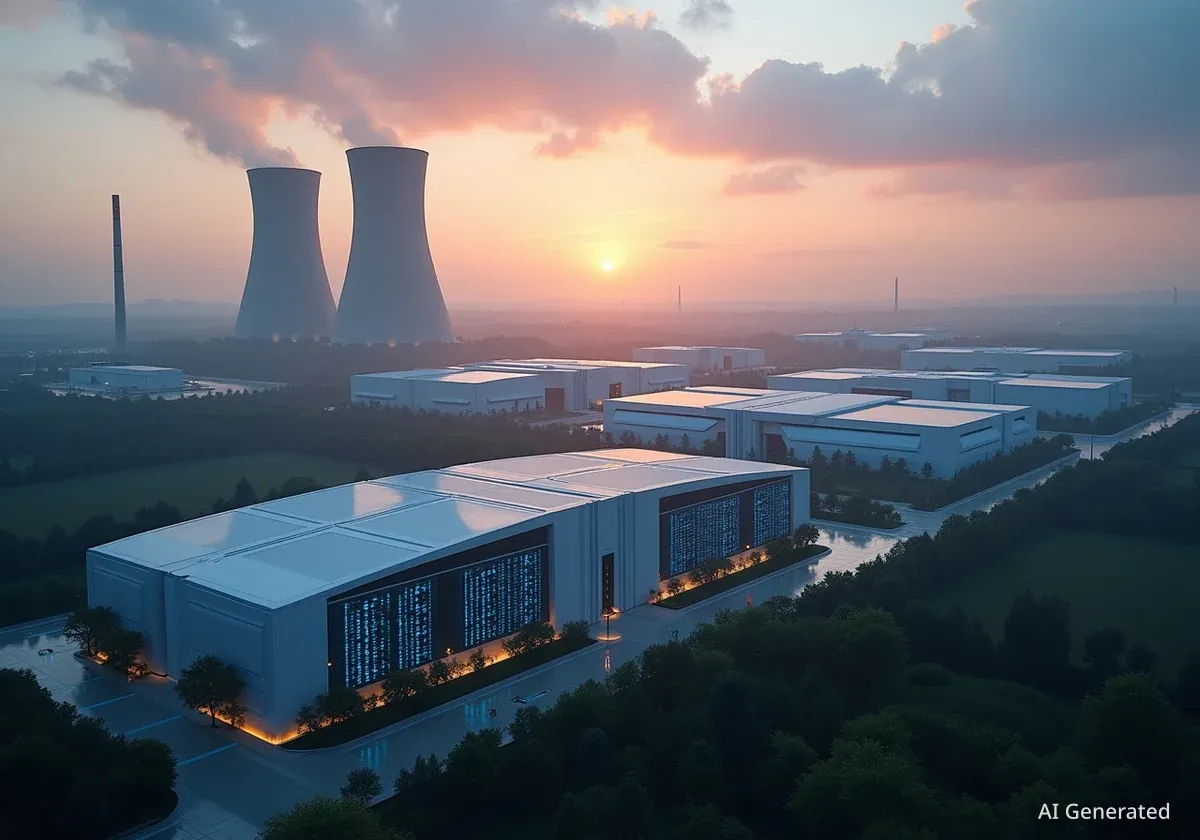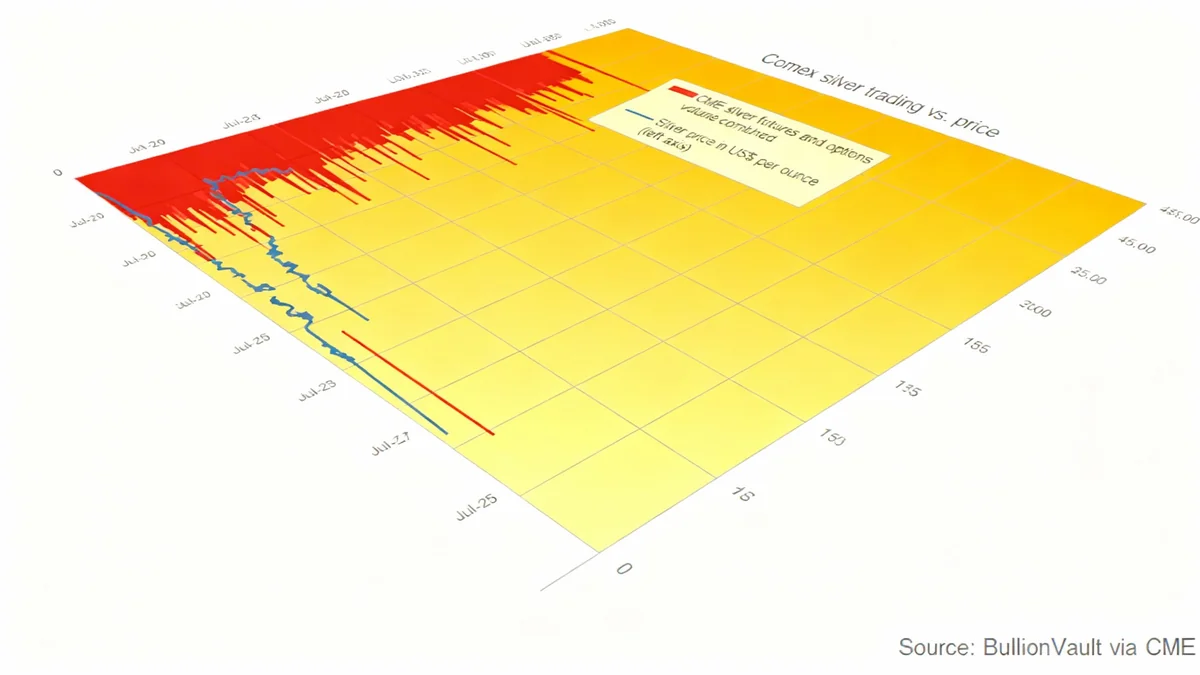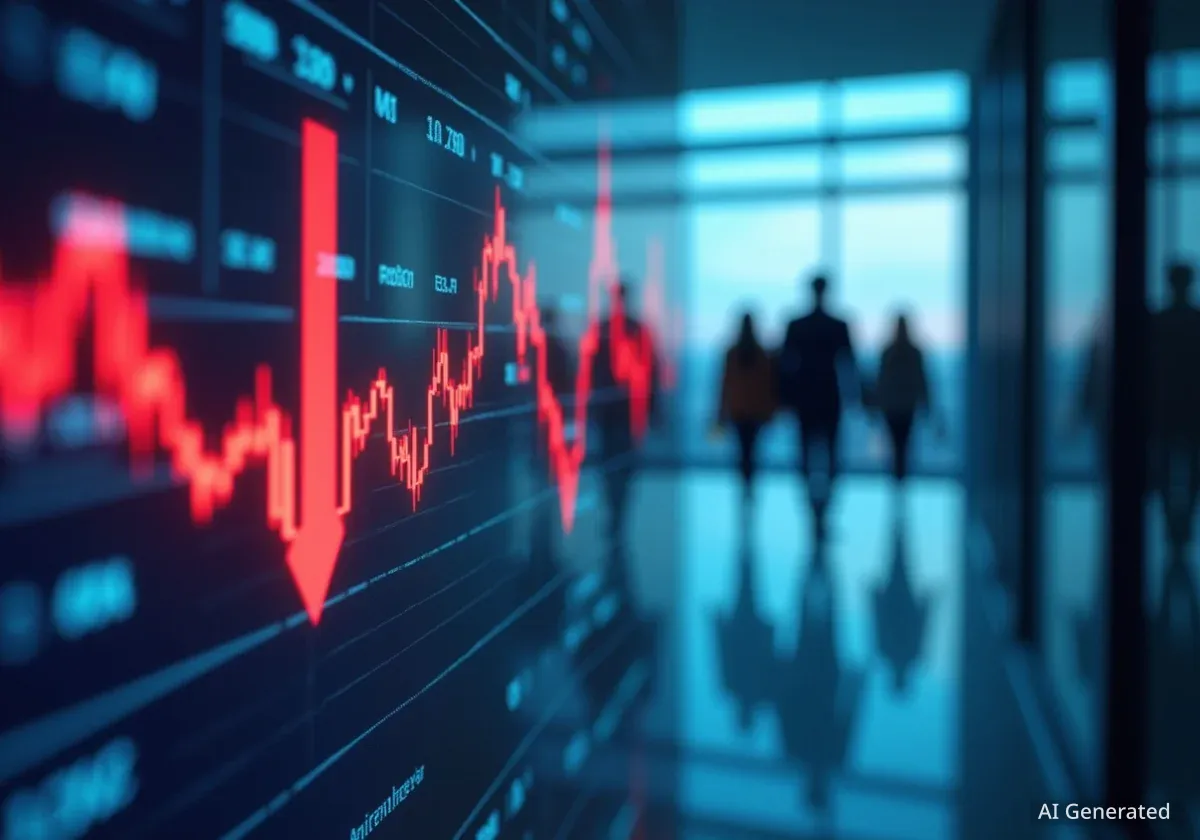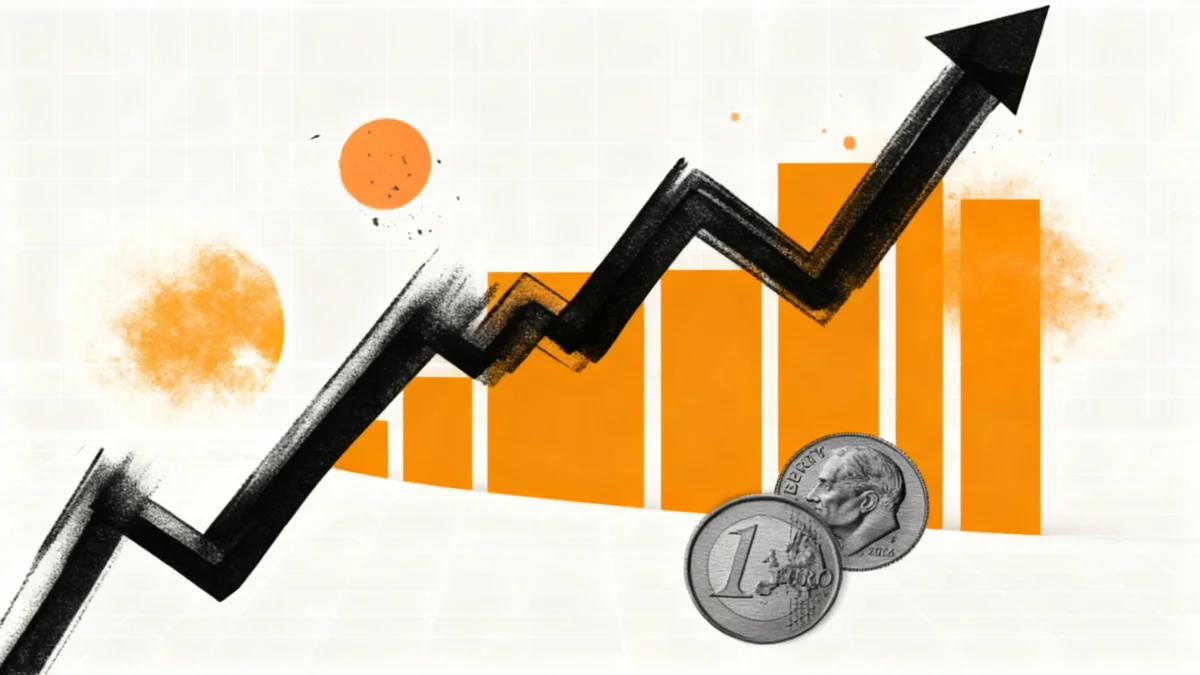Fermi, a newly-formed Texas company, saw its stock surge 55% in its market debut after launching an initial public offering that valued the firm at $13.8 billion. The company, which has an ambitious plan to build the world's largest data center campus powered by its own natural gas and nuclear facilities, priced its shares at $21 before they closed at $32.53 on the first day of trading.
Founded just 10 months ago in January, Fermi aims to address the rapidly growing energy demand from the artificial intelligence industry. However, the company faces substantial risks, as its large-scale infrastructure projects exist almost entirely on paper and it does not expect to generate revenue for several years.
Key Takeaways
- Fermi (FRMI) launched its IPO at $21 per share, raising $682.5 million and achieving a $13.8 billion valuation.
- The stock price increased by 55% to $32.53 on its first day of trading on the Nasdaq and London Stock Exchange.
- The company plans to build a massive data center campus in Texas powered by a combination of natural gas, nuclear, solar, and battery storage.
- Significant execution risks exist, as the company has no revenue and its core infrastructure has not yet been built.
Strong Market Debut Signals Investor Interest
Fermi's initial public offering was priced at the top of its expected range at $21 per share. The offering, which was dual-listed on the Nasdaq under the ticker FRMI and on the London Stock Exchange, successfully raised $682.5 million for the company. Investor enthusiasm was evident as the stock price climbed significantly during its first day of trading on Wednesday, closing at $32.53.
The rapid progression from a concept to a publicly traded company in under a year has been noted by those involved. Nick Davis, a lawyer at Haynes Boone who advised on the offering, commented on the speed of the process, stating, "My initial reaction was this is not possible."
The funds raised will primarily be used to secure essential equipment for the planned infrastructure. Despite its ambitious goals, Fermi is structured as a real estate investment trust (REIT), a business type typically associated with stable, dividend-paying assets. However, Fermi has no current revenue and is not expected to pay dividends for years.
What is a REIT?
A Real Estate Investment Trust (REIT) is a company that owns, and in most cases operates, income-producing real estate. While often associated with properties like office buildings or apartment complexes, the structure can be applied to infrastructure assets. According to Matt Fry, another lawyer at Haynes Boone, using the REIT structure helped simplify taxation issues related to the company's dual listing in New York and London.
A Vision for a Self-Powered AI Hub
At the core of Fermi's business plan is the development of the world's largest data center campus. The company is leasing a 5,236-acre site, equivalent to about nine square miles, in the Texas Panhandle from Texas Tech University. This location was chosen for its proximity to a major natural gas field and access to multiple pipelines.
The company's strategy is to provide both the physical space for data centers and the immense power they require. The plan includes a mix of on-site power generation sources:
- Natural gas plants
- Nuclear reactors
- Solar fields
- Battery storage systems
Fermi CEO Toby Neugebauer described the project's scale in an interview. He stated that by 2038, the site could generate twice the amount of electricity currently used to power all of New York City. "It’s not a unicorn. It’s a multi-unicorn," Neugebauer said, emphasizing the project's potential.
High-Profile Founders
Fermi was co-founded by several prominent figures, including Rick Perry, the former governor of Texas and U.S. energy secretary. His son, Griffin Perry, and private-equity executive Toby Neugebauer are also co-founders, bringing experience in energy project financing and public policy.
Substantial Risks and Long-Term Challenges
Despite the successful IPO, investing in Fermi is a bet on a future vision rather than a current business. The company faces enormous hurdles in executing its plans. Its primary assets—the power plants and data center infrastructure—have not been constructed. This makes the company's success dependent on its ability to manage complex, multi-billion-dollar construction projects on a tight timeline.
One of the most significant challenges is the plan to build nuclear reactors. Fermi intends to construct its first large reactor by 2031 as part of what it calls the Donald J. Trump Generating Plant. Historically, similar nuclear projects in the United States have faced extensive delays and cost overruns. The last reactors built with comparable technology took approximately 15 years to complete and were significantly over budget.
"We are not a utility," Neugebauer stated. "I have zero interest in being in the utility business. I can’t overstate it. If this was a utility thing, I wouldn’t even be on the phone with you."
This distinction is critical to Fermi's model, which relies on long-term leases from large-scale tenants, such as major technology companies, to generate revenue. The company recently signed a letter of intent with an unnamed tech company for a lease of up to 40 years. However, Fermi does not anticipate earning any tenant revenue before 2027.
An Uncertain Financial Future
The financial model for Fermi carries a high degree of uncertainty. The company must fund its massive upfront infrastructure costs by tapping capital markets. Its ability to service the resulting debt will depend on securing tenant payments in a timely manner. Any delays in construction or in signing tenants could jeopardize the entire business model.
Timm Schneider, founder of the energy consultancy Schneider Capital Group, analyzed the company's prospects and noted the wide range of possible outcomes. In a note to clients, he projected that Fermi's stock could plausibly trade anywhere from $7 to $105 per share.
Schneider's analysis highlights the reflexive nature of the company's valuation. "If operational performance stalls, leverage rises, costs snowball, and equity value can unravel–kick-starting a negative spiral," he wrote. He pointed to both successful high-growth companies like Amazon and Tesla, and cautionary tales like WeWork, as examples of how such self-reinforcing dynamics can play out.
For investors, Fermi represents a high-risk, high-reward proposition. The company is attempting to solve a critical bottleneck for the AI industry—the availability of massive amounts of power. If successful, the potential returns could be substantial. However, the path to profitability is long and filled with significant operational and financial obstacles.





